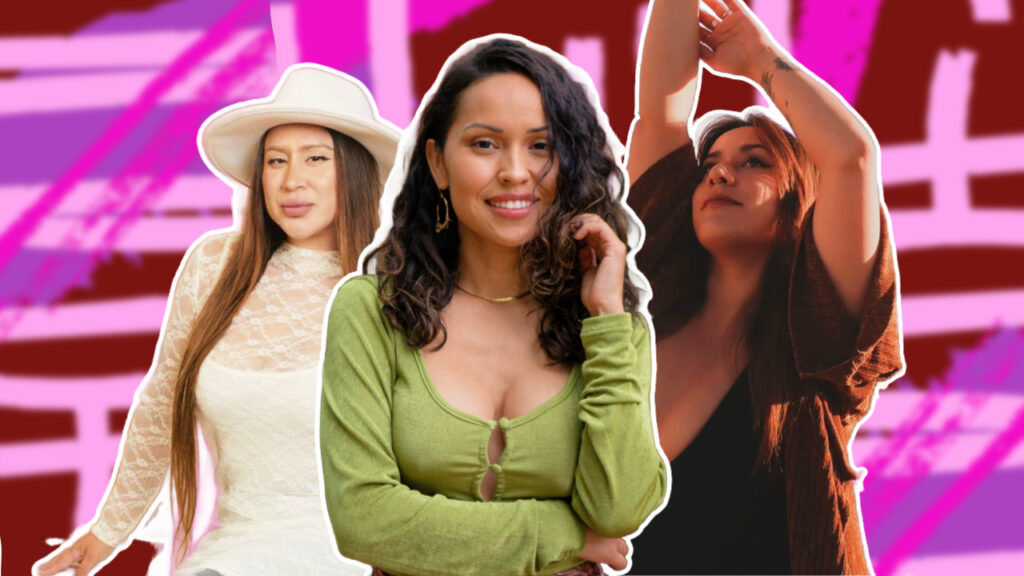
Grecia Lopez Is Speaking Out About Being Born Without a Uterus—And Why It’s Time We Rethink How We Talk About Women’s Health
When Grecia Lopez was a teenager, she started to notice something that set her apart from her peers. “Some of my best friends in high school were getting their period,” she recalled during our interview. “And I’m like, it’s not happening.”
At first, Grecia’s doctor brushed it off, suggesting she might be a late bloomer or that her activity level as a dancer could be the reason. But when she was 18 and in college, her first experience with sex was so painful she knew something wasn’t right. A pelvic ultrasound revealed the truth: Grecia was born without a uterus. Her diagnosis? Mayer-Rokitansky-Küster-Hauser (MRKH) syndrome, a congenital disorder that affects 1 in 4,500 female newborns, according to MedlinePlus.
MRKH syndrome causes the vagina and uterus to be underdeveloped or absent, though external genitalia appear normal. Individuals with MRKH typically have functioning ovaries and normal breast development, but they do not get menstrual periods and cannot carry a pregnancy. Grecia has MRKH type 1, which affects only the reproductive organs.
“Everything looks normal externally,” she explained. “It’s my internal organs. We don’t get diagnosed until puberty, when you’re supposed to get your period.”
The emotional impact of MRKH hit Grecia Lopez in college—and again at 30
For Grecia, the diagnosis initially felt like a strange mix of relief and distance. “At the time, I was in college. I wanted to be a reporter,” she said. “Having a baby at 20, 21? Hell no.” But things changed with age. “Now at 30, I’m like—oh sh*t. If I want to be a mom one day, this is going to be expensive, mentally draining, emotionally draining.”
That shift was deeply personal. “I was in a long-term relationship for seven years, and with him I was like, no kids, I’m fine,” she said. “Then I met someone absolutely incredible. He changed my perspective.”
Grecia Lopez wants us to stop assuming every woman has a period
One of the most common misconceptions Grecia encounters is the belief that every woman menstruates. It’s a myth that’s deeply embedded in how we talk about womanhood. “Stop saying every woman has a period because we don’t,” she said bluntly. “That’s it. Period.”
She remembers health class vividly—and how it failed to reflect her experience. “They say, every woman gets a period, every woman goes through PMS. No, we do not.”
Still, she experiences hormonal shifts. “I do have emotions. But the PMS stuff? I don’t. Sometimes I get bloated, moody, emotional—so maybe my hormones are acting up. But for the most part, I’m like: what are we doing today?”
Sharing her story hasn’t always been easy for Grecia Lopez
Grecia first started talking about her diagnosis in 2015-2016, when she launched a YouTube channel called Born Without a Uterus. Her early videos garnered tens of thousands of views, but she eventually stepped back from the spotlight.
“The comments got to me,” she said. “So many were ignorant or just cruel. Like, if you don’t have a uterus, how do you pee? Or people asking if I was trans, if I looked deformed.”
At the time, she was in journalism school and worried about how public vulnerability might affect her career. “Back then, they were very like, don’t share too much personal stuff online. You might not get a job.”
Now, nearly a decade later, she’s stepping back into the conversation—on her own terms.
Grecia Lopez found support in the Beautiful You MRKH Foundation
As Grecia continued researching MRKH, she found community through the Beautiful You MRKH Foundation, which connects people with MRKH and organizes events to raise awareness.
She’s traveled to conferences across the country to speak directly with doctors and other patients. “The most important thing I learned is that this syndrome has been around for years,” she said. “Now, with advanced medicine, we’re able to diagnose women sooner.”
At one conference, Grecia met women ranging in age from nine to over 70. “Can you imagine being nine years old, learning about not having a uterus, the complications, the mental stress?”
For Grecia Lopez, MRKH affects sex, identity, and relationships—but not her womanhood
“As a Latina who can’t get pregnant, and you share it with your family… It’s hard,” Grecia admitted. “I remember telling my grandmother, and she said, ‘I could pray.’ And I was like, do you not understand this isn’t a religion thing?”
Sex was another layer of complexity. “Intercourse was painful. There’s an absence of a vaginal canal, so it’s short. You’re hitting a wall,” she explained. Reconstructive surgery and vaginal dilators are options for some people with MRKH, but Grecia took a different route. “I didn’t want surgery,” she explained. “I was in college.” Eventually, she figured it out “with a partner who was patient.”
That kind of support has made all the difference. “He changed everything,” she said. “I just felt my body letting loose and accepting this person. It wasn’t painful. It was very soft, very genuine.”
Grecia Lopez is using her platform to challenge shame around infertility
Now, Grecia is a bilingual journalist, entertainment host, and producer, currently working with Amazon Music Latin as the first female host of “Platino Radio en DJ Mode.”
But outside of her career wins, she’s also working to educate others on infertility—especially in Latinx communities, where the topic is often taboo. Her TikToks have reached millions.
“These conversations matter,” she told us. “We’re kind of fighting to normalize it again, to reclaim the narrative.”
Follow Grecia on social media to learn more about her journey and to keep up with her work in media and advocacy.




